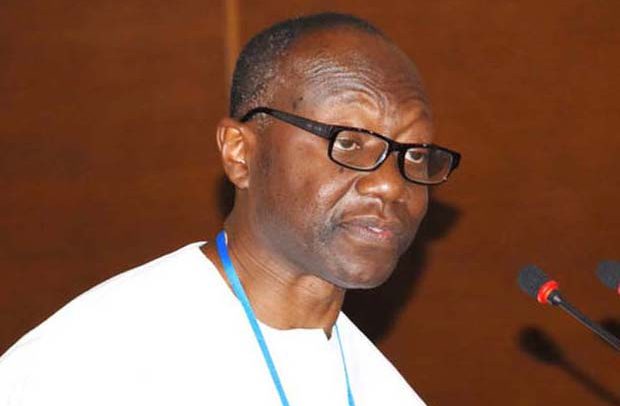Finance Minister Ken Ofori Atta
GOVERNMENT PLANS to issue a gross amount of GH¢22,727.87 million, of which GH¢19,677.65 million is to rollover maturities and the remaining GH¢3,050.22 million will go into fresh issuance to meet government’s financing requirements for September and November, this year.
For June to August, government announced it would borrow a gross amount of GH¢17,837.87 million, of which GH¢15,806.61 million was to rollover maturities while the remaining GH¢2,031.26 million was reserved for fresh issuance to meet its financing requirements.
Similarly for April to June this year, it issued a gross amount of GH¢17,957.87 million, of which GH¢13,680.82 million was earmarked to rollover maturities and the remainder of GH¢4,277.05 million went into fresh issuance to meet its financing requirements.
For January to March, this year, government issued a gross amount of GH¢19,087.87 million, of which GH¢15,685.81 million was used to rollover maturities while the remaining GH¢3,402.06 million was used to meet government’s financing.
At end of March this year, Ghana’s total debt reached GH¢236.1 billion, according to the Bank of Ghana (BoG).
As at end-June 2020, Ghana’s provisional debt stock stood at GH¢255,727.1 million (US$45,486.1 million), representing 66.36 per cent of GDP.
The increase, according to Finance Minister, Ken Ofori-Atta, “was mainly as a result of a Eurobond issuance of US$3.0 billion in February 2020, exchange rate depreciation, frontloading of expenditures and the Covid-19 effect which increased the cedi equivalent of the outstanding debt stock.”
He said the total debt stock was made up of GH¢134,888.9 million (US$23,992.6 million) and GH¢120,838.3 million (US$21,493.4 million) of external and domestic debt accounting for approximately 52.7 per cent and 47.3 per cent of the total public debt stock, respectively.
As a percentage of GDP, external and domestic debt represented 35.00 per cent and 31.36 per cent, respectively.
In his mid-year budget review to Parliament, Mr. Ofori-Atta stated that new financing secured by government from both domestic and external sources to close the financing gap included GH¢1.2 billion from the Ghana Stabilization Fund (GSF) through Lowering of the Cap on GSF from US$300 million to US$100 million and transferring the excess over the cap into the Contingency Fund to finance the Coronavirus Alleviation Programme (CAP); GH¢5.8 billion from the IMF Rapid Credit Facility; and GH¢580 million from the World Bank Support for Covid-19 Preparedness & Response support. He also mentioned GH¢406 million from the African Development Bank; GH¢10.0 billion from the BoG as Covid-19 Relief Bond; and GH¢2.0 billion from the World Bank as budget support.
The Finance Minister was therefore granted parliamentary approval to commit GH¢11,896,477,566 to fund additional expenditures resulting from the revisions made to the 2020 budget, consistent with Article 179 (8) of the 1992 Constitution. This brought the revised 2020 Total Appropriation to GH¢109,933,169,924.
BY Samuel Boadi


